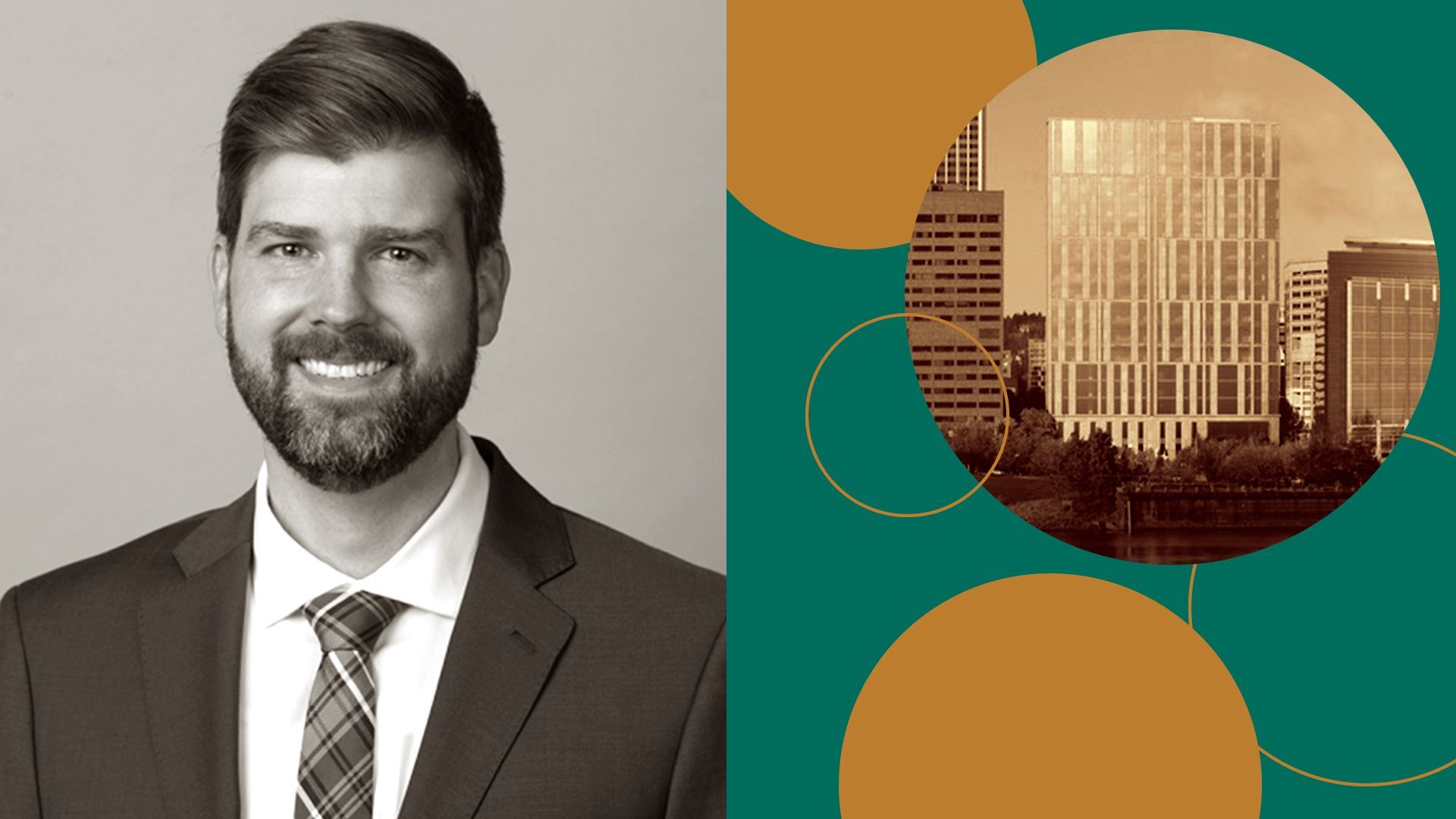Jail unlikely in enforcement of Portland camping ban, DA says
Add Axios as your preferred source to
see more of our stories on Google.

Multnomah County District Attorney Mike Schmidt and the downtown Multnomah County Courthouse. Photo Illustration: Lindsey Bailey/Axios; Photo: Oregon Judicial Branch, Multnomah County
Enforcement of Portland's divisive new camping restrictions for unhoused people won't start until at least late July, but Multnomah County District Attorney Mike Schmidt says that arrests of people violating the new rules — authorized after two written warnings — may not lead to trials or jail time.
Why it matters: With supporters telling Axios enforcement is a critical piece of the policy and opponents warning the new rules may be unconstitutional, exactly how enforcement happens is likely to have practical and political effects.
Driving the news: We sat down with Schmidt to understand how he's planning to approach the new law.
- "When the case comes to my office, we might still issue charges, but I can say right then, 'Hey, I'll dismiss this case if you'll connect with services,'" Schmidt told Axios. "That would be my goal."
Catch up quick: Portland's new policy, intended to align with state law and a federal court case affecting many Western cities, would ban daytime camping everywhere and overnight camping in many places, particularly near schools and shelters.
Schmidt said that police are likely to hand out citations with court dates, as opposed to taking people to jail. He doesn't expect many people cited would show up to court — and even if they did, he doubts prosecution would be worthwhile or effective.
Details: Schmidt cited a host of issues, including the backlog of misdemeanors before the courts at a time "where we don't have enough defense attorneys."
- "It's my experience with Multnomah County jurors that they would probably feel like that was a pretty big waste of their time, to spend a day away from work or other things to hear a case about a person who was homeless, who was sleeping on the street."
- "I also find it hard to believe that a judge is going to do anything other than say, 'Can we get you connected to services?'"
The other side: Dan Lavey, co-founder of the strategy group People for Portland, which pushed for the new ban, told Axios jail is not the solution. But he believes enforcement is crucial.
- "Folks on the street will know if the law is being enforced or not, and they will act accordingly," he said. "If they don't think the law is being enforced, they're not going to change their behavior."
Context: Mayor Ted Wheeler's office says he agrees with Schmidt's approach.
- "There is universal support for using any available alternatives to criminal punishment possible," the mayor's office told Axios in a statement.
